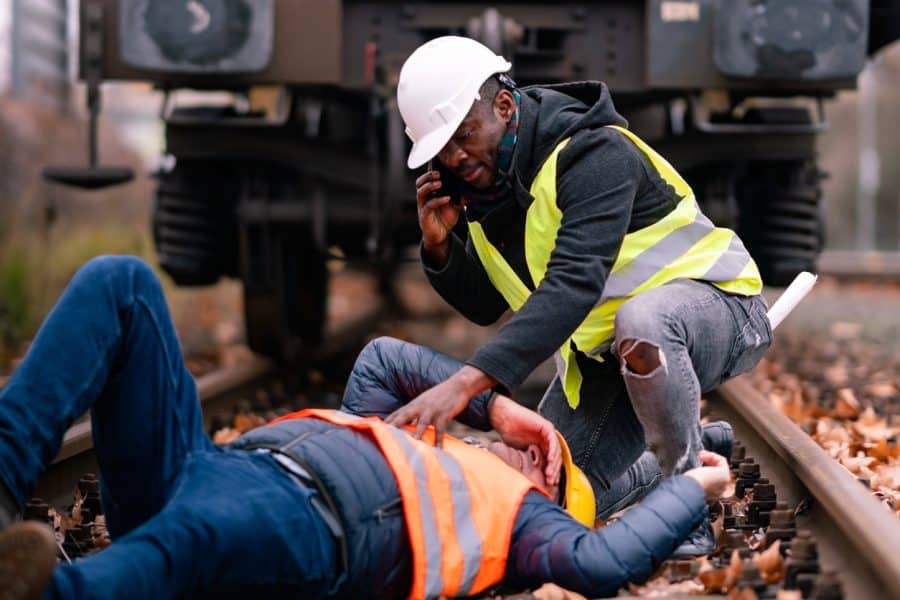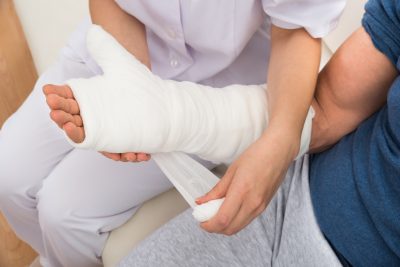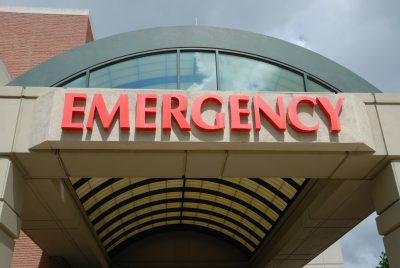Georgia Workers’ Compensation Lawyer
 In certain jobs, getting hurt at work is just a fact of life. In other professions, on-the-job injuries are not as common, but they still happen. Regardless of where you work and what you do to earn a living, federal and Georgia state worker safety rules are intended to reduce preventable workplace risks.
In certain jobs, getting hurt at work is just a fact of life. In other professions, on-the-job injuries are not as common, but they still happen. Regardless of where you work and what you do to earn a living, federal and Georgia state worker safety rules are intended to reduce preventable workplace risks.
Unfortunately, employers often ignore these guidelines to save a few bucks. Work-related accidents injure millions of Americans every year. Several thousand workers die as a result. This fact will not surprise those who work in high-risk jobs requiring frequent driving, heavy equipment use, or dangerous heights.
At Scholle Law, our team of experienced attorneys have decades of experience representing victims of workplace injuries. We know how employers and their insurance providers try to dodge accepting responsibility when an injury happens, and we will fight for every penny of compensation you deserve.
Call us at (866) 592-1296 or contact us online for a free, no-obligation consultation with a Georgia workers’ compensation lawyer today.
Workers’ Compensation in Georgia
 Georgia’s workers’ compensation laws generally cover work-related injury, illness, and death. Workers’ compensation is a form of insurance. It covers workers like you who suffer because of a work-related injury or illness. Workers’ compensation can cover lost income, medical expenses, and other damages.
Georgia’s workers’ compensation laws generally cover work-related injury, illness, and death. Workers’ compensation is a form of insurance. It covers workers like you who suffer because of a work-related injury or illness. Workers’ compensation can cover lost income, medical expenses, and other damages.
You do not need to prove your employer’s fault to recover workers’ compensation benefits.
However, you must generally prove a link between your injury or illness and your job to qualify for benefits.
You cannot typically recover compensation for:
- An injury suffered at home
- An injury caused by horseplay
- An injury that happened because of non-work-related activities
- Workplace accidents that occur while an employee is under the influence
- Accidents that happen off the clock, including during lunch
- Injuries that are self-inflicted or occur due to willful misconduct
- Heart attacks, strokes, and other common medical conditions
- Emotional trauma, unless physical injury is also present
- Scarring or disfigurement caused by workplace injuries
Your employer has to prove that your injury or illness is not work-related.
Damages covered by workers’ compensation
Georgia workers’ compensation generally covers medical treatment. It also covers two-thirds of your average weekly wage (for a fixed period). Your covered medical care may include:
 Emergency room visits
Emergency room visits- Hospital admissions
- Physician and specialist care
- Diagnostic tests and imaging
- Physical and occupational therapy
- Psychological and psychiatric care
- Chiropractic services
- In-home nursing and attendant care
- Prescription medications
- Prostheses and braces
- Crutches, wheelchairs, and other assistive devices
What are the most dangerous jobs in Georgia?
Certain occupations are especially high-risk for injuries. As such, insurance rates vary depending on the danger of the industry. Workers’ compensation rates show that the most dangerous professions in Georgia include:
- Construction
- Mining, logging, and other natural resource extraction
- Commercial driving
- Piloting
- Farming
- Manufacturing
- Waste management
Your profession could impact certain aspects of your claim, such as the expectation of injury. Your Georgia workers’ compensation attorney can help you determine if your occupation will affect your claim.
Employer Responsibilities to Workers
 Under Georgia law, employers have certain obligations to their employees. These obligations can vary depending on the type of employment, the size of the business, and other factors.
Under Georgia law, employers have certain obligations to their employees. These obligations can vary depending on the type of employment, the size of the business, and other factors.
Are you an independent contractor or employee?
Independent contractors are not generally entitled to workers’ compensation benefits. Georgia Code §34-9-2(e) defines an independent contractor as one who intends to work independently rather than as an employee. The contractor controls the time, manner, and method of the work. They get paid by the job or unit rather than an hourly wage or salary.
Employers have an obligation to insure
Georgia Code §34-9-120 requires that employers pay workers’ compensation benefits to employees who are injured or made ill due to their work. You may sue an employer who failed to purchase workers’ compensation insurance.
Can employees of subcontractors receive workers’ compensation benefits?
Georgia Code §34-9-8 extends the obligation to pay workers’ compensation benefits to the employees of subcontractors. If they do not have insurance, a general contractor or another party may be liable for your injury or illness.
Common Types of Work-Related Injuries
 Workplace injuries can take any number of forms. For instance, a white collar office worker may suffer an injury from a slip and fall on icy stairs. Or, a warehouse employee may tweak their back picking up heavy boxes.
Workplace injuries can take any number of forms. For instance, a white collar office worker may suffer an injury from a slip and fall on icy stairs. Or, a warehouse employee may tweak their back picking up heavy boxes.
It is a common myth that injuries must be severe or catastrophic to qualify for a workers’ compensation claim. While this is not true, severe injuries do happen all too often, and they can have lifelong impacts.
Catastrophic Injuries
Workplace accidents can be fatal. They can also result in catastrophic injury, including:
- Brain injuries
- Amputation
- Paralysis
- Severe burns
Catastrophic injuries have an extraordinary financial impact. A serious injury can cost hundreds of thousands of dollars to treat, even with health insurance. Making matters worse, victims are out of work. Injuries that cause permanent disability mean permanent, career-long loss of income.
Other Disabling Injuries
An injury need not be catastrophic to keep one from working for a significant period of time. Such injuries cause substantial work loss and medical expenses. Even relatively minor injuries can completely disable a worker.
Some common disabling injuries resulting from work-related accidents include:
- Back and neck injury
- Burns
- Fractures
- Head injury
- Coma
- Internal injuries
Speak with a Georgia Workers’ Compensation Attorney Today

From left: Attorneys Annette Malena, Charles Scholle,
and Todd I. Shugart
Workplace accidents and injuries present complex legal issues. Under Georgia law, only some injuries and illnesses in some situations are covered by workers’ compensation.
In addition, employers will often try to deny claims, as every successful claim can increase their insurance rates. So, employers may argue that the injury was not work-related, happened off-the-clock, were caused by the employee’s own actions, or otherwise say they are not responsible.
At Scholle Law, our workers’ comp lawyers have heard all of these arguments and more. For over 25 years, we have successfully taken on insurance companies and recovered millions on behalf of our clients.
Call us at (866) 592-1296 or contact us online for a free, no-obligation consultation with a Georgia workers’ compensation lawyer today.
Why do I need a work injury lawyer?
Employers may owe compensation benefits no matter who was at fault and even when no one is at fault. Too often, though, employers and their insurers don’t pay. Instead, they discourage the employee from pursuing due benefits. This is one reason why you need a worker’s compensation lawyer.
When harm to the employee is the result of an employer’s negligence, the employee may be able to sue the employer. You may also sue a third party who caused your injury. Lawsuits and claims are complex. Handling either one without a lawyer’s help comes with immense risk.
Hiring a lawyer generally comes with no upfront cost or risk. Make the call today.
Why should I retain attorney Charles Scholle and Scholle Law?
Premier Atlanta-area attorney Charles Scholle has practiced personal injury law for over 25 years with impressive results.
Scholle leverages his experience and professional network for every client. Scholle Law deploys the necessary resources to seek the best results for its clients. Scholle and his team skillfully negotiate with insurers to secure the best possible settlement.
They do not hesitate to file lawsuits and try cases to juries when necessary. Scholle Law is proud to represent clients with serious claims. We will seek the recovery that you deserve.
Can I sue my employer?
You may sue your employer under certain circumstances. If they do not have worker’s compensation, they may be exposed to a lawsuit.
You may also sue someone other than your employer. You may have a negligence claim against a third party. These parties may include:
- A driver with no employment relationship to your employer
- The owner of a defective vehicle
- A third-party contractor
- Customers or clients of your employer
- Anyone who committed a violent crime against you while you were at work
The legal relationships between parties involved in your case matter. The Georgia work injury lawyers at Scholle Law understand how to complete cases like yours.
What is the worth of my worker's compensation case?
The value of a worker’s compensation case tends to depend on:
- The nature of your injuries (including whether they are disabling)
- The severity of a disability
- The cost of your medical care
- The value of your lost wages
- Other case-specific factors
We will not know the value of your case until we speak with you during your free, no-obligation consultation.
What is a third-party claim?
Georgia Code §34-9-11 makes workers’ compensation benefits the exclusive route to compensation in most cases. There are exceptions, though.
You can sue a third party who causes you harm in your workplace. A third-party claim is generally a negligence claim or products liability claim against a person or company who:
- supplied a defective product
- Rendered careless service
- Contributed to your workplace injury
In the case of a claim or lawsuit, we are here for you. Call Scholle Law today for a free consultation.
